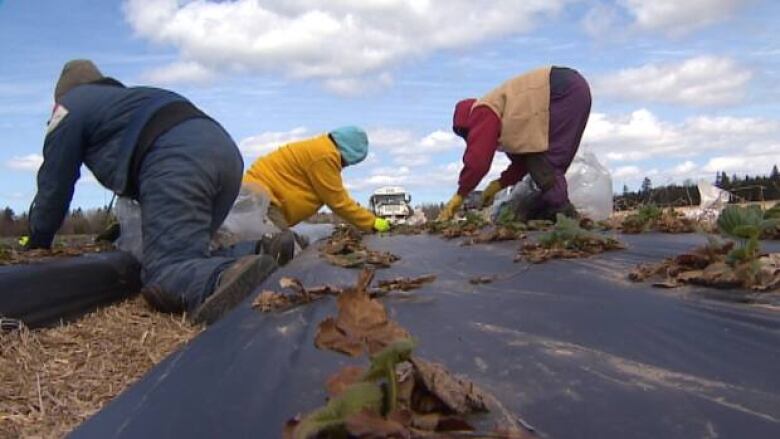Mutant strawberry virus threatens $17M N.S. industry
New, mutated virus a combination of 2 previously known viruses

Nova Scotia's multimillion-dollar strawberry industry is under attack from a mutant pest.
An insect-borne plant illness has been detected in an area just north of Truro. Thearea isresponsible for about 40 per cent of the province's $17 million industry.
Thenew virusthe result of two known viruses combining into a new, mutated form are spread by the strawberry aphid. The strawberry aphid is a small, soft bodied insect that siphons plant sap.
The virus weakens plants to the point where the berries themselves are undesirably small, or the plant fails to produce berries altogether.
At the moment, the new virus is confined to the Great Village area outside of Debert, N.S.
"The area around Debert that we're thinking about probably does about 40 per cent of the industry in that one area, so it's significant enough and I think the task for us is to convince the federal government that 40 per cent of the industry is enough to trigger a recovery payment," said Nova Scotia Agriculture Minister John MacDonell.
About81 hectares of strawberry fields are being plowed under or having plants cut out of the ground.
One of the provinces largest strawberry operations, the Millen Farms Ltd., had about two dozen Jamaican workers pulling plants on Thursday in an effort to stem the tide of the viruss damage.
Though some fields will be replanted later this year, Millen Farms Ltd. owner Curtis Millen said he will lose up to 70 per cent of this year's production, costing him millions of dollars.
MacDonell said the province is looking at four possible disaster relief programs for farmers, all of which would be cost-shared between the province and the federal level.
Some infected plants from the Great Village area were unwittingly transferred to several southern U.S. states.
With files from Paul Withers












_(720p).jpg)


 OFFICIAL HD MUSIC VIDEO.jpg)
.jpg)



























































































